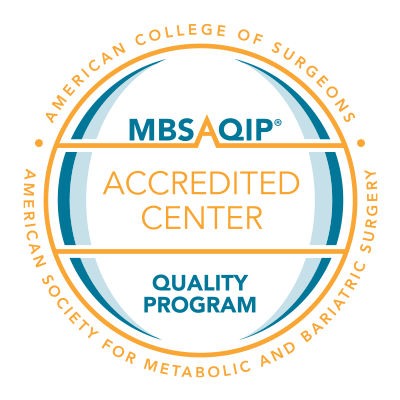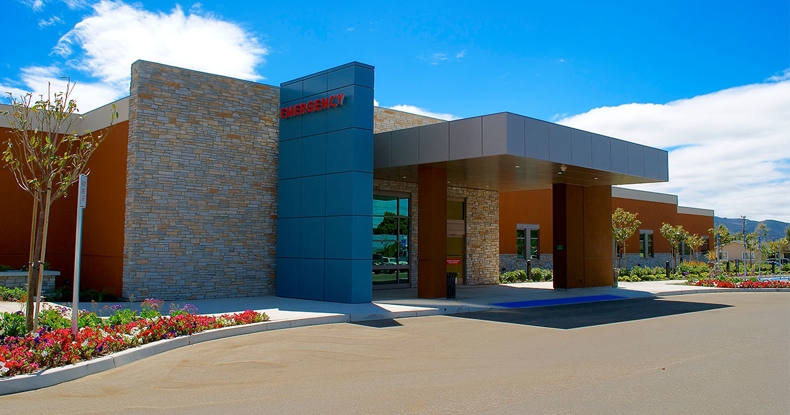Choosing Medication or Surgery to Lose Excess Weight
- Category: Health & Wellness, Weightloss
- Posted On:
- Written By: Cristina Ortega, RN

Knowing the ins and outs of weight-loss medications and surgeries can empower patients to choose the correct treatment when they’re ready to lose excess weight.
Exercise and nutrition are two important lifestyle behaviors that can help you lose extra weight. However, some people remain unable to lose weight even after exercising and eating healthy foods for some time.
Medical Weight Loss Management and weight-loss surgery are two medical treatments that may help when you have tried everything else. Your doctor can talk to you in more detail about these treatments if your goal is to lose weight and become healthier.
Keep reading to discover whether you should choose medications, medical weight loss management, or surgery for weight loss and how to contact Lompoc Valley Medical Center when you are ready to discuss beginning a treatment plan.
What is Medical Weight Loss Management?
Prescription weight-loss medications are drugs prescribed and closely managed by your doctor that interact with your body in specific ways that promote weight loss. All medications are FDA-approved and used to control weight loss and reduce obesity.
You must be a proper candidate to participate in the Medical Weight Loss Management program. Discussion with our physician can determine if you are eligible. Eligibility may include your BMI score and any other weight-related health problem (s) you may encounter. Such problems may consist of Diabetes Mellitus Type 2, Hyperlipidemia, GERD, and Sleep Apnea.
How Do Prescription Weight-Loss Medications Work?
Each weight-loss drug works uniquely to help you lose extra weight. Your doctor can help you choose a weight-loss medication based on your medical history and your history with weight loss attempts. Available weight-loss drugs include Phentermine, Orlistat, Liraglutide, Topiramate, Bupropion, and Naltrexone.
What Is Weight-Loss Surgery?
Weight-loss surgery is a procedure in which a surgeon makes changes to your digestive system to help you lose extra weight. There are several types of weight-loss surgeries; some reduce the size of your stomach while others reroute your intestines to help you absorb fewer calories.
Weight-loss surgery is usually the last resort for people who are obese and who have not been able to lose weight using any other methods. You may qualify for weight-loss surgery if you have a BMI of 40 or greater. You may also qualify for these procedures if your BMI is 35 or greater and you have a weight-related health problem like diabetes. …
How Does Weight-Loss Surgery Work?
There are several types of weight-loss surgery available. The most common surgeries are gastric sleeve and gastric bypass.
Gastric Sleeve Surgery
Gastric sleeve surgery is also known as sleeve gastrectomy. This weight-loss surgery is restrictive because it reduces the amount of food you can eat during a meal. This helps you feel full sooner so you can lose extra weight.
About 80% of your stomach is removed in gastric sleeve surgery. The remaining 20% of your stomach will be a vertical, banana-shaped pouch.
A sleeve gastrectomy can help speed weight loss by making it difficult to overeat food at once and feel satisfied after small meals. After a sleeve gastrectomy, the volume of the new smaller stomach can hold is reduced from one quart to about one ounce or two tablespoons. Over time the stomach pouch will stretch until it can hold 4 – 8 ounces or about ½ cup at a time.
Gastric sleeve surgery is a life-long commitment. When you commit to this surgery, you are also committing to eating less food and making healthier choices. You will also be expected to exercise regularly. All these behaviors can help you maintain a healthy weight.
In a 2017 study published in the World Journal of Gastrointestinal Surgery, researchers looked at the effects of gastric sleeve surgery in 140 patients. All patients had a BMI between 34.2 and 76. By the end of the first year after surgery, the average BMI among these patients was 26.4.
Gastric Bypass Surgery
Gastric bypass surgery is also known as Roux-en-Y gastric bypass surgery. This surgery is both restrictive and malabsorptive. It is restrictive because it reduces the amount of food you can eat in one sitting. It is malabsorptive because it prevents your body from absorbing too many calories.
In gastric bypass surgery, the effects are achieved by creating a small stomach pouch (approximately thumb-sized) from which the rest of the stomach is permanently divided and separated. The small intestine is cut about 18 inches below the stomach and re-arranged to provide an outlet to the small stomach while simultaneously maintaining the flow of digestive juices. The lower part of the stomach is bypassed, and food enters the second part of the small bowel within about 10 minutes of beginning the meal.
The result is an early sense of fullness followed by a very profound sense of satisfaction. Even though the portion size may be small, there is no hunger and no feeling of being deprived; you will feel satisfied and indifferent to even the choicest foods. Patients continue to enjoy eating, but they enjoy eating a lot less.
Having a Gastric Bypass can help speed weight loss by making it difficult to overeat food at one time and to feel satisfied after small meals.
Like gastric sleeve, this surgery is also a life-long commitment. Like gastric sleeve, this surgery is also a life-long commitment.
A large portion of your stomach gets removed during this procedure, and your small intestine is rerouted. A smaller stomach limits the amount of food you can eat in one sitting. The rerouting of your small intestine causes your body to absorb fewer calories. Together, these two changes can help you lose most of your excess body weight.
In addition to making your body absorb fewer calories, gastric bypass may affect the way your body absorbs nutrients. Most doctors will recommend you take vitamins and supplements to prevent malnutrition after you have this surgery.
What Are the Benefits of Choosing Weight-Loss Medication?
Weight-loss drugs are far less invasive than weight-loss surgery. These medications can be taken if your BMI is as low as 27. In comparison, surgery is only approved for those with a BMI of at least 35.
Weight-loss medications can be stopped at any time. This is important if you feel the drugs are not working or causing too many side effects. Your doctor can also switch your medications if they are not helping you lose enough extra weight.
According to the National Institutes of Health (NIH), some people who take weight-loss drugs lose at least 10% of their starting weight. The NIH adds that most weight loss occurs during the first six months after you start your medication. Additional benefits of weight-loss drugs include reduced blood sugar, blood pressure, and triglyceride levels.
What Are the Benefits Of Choosing Weight-Loss Surgery?
Weight-loss surgery involves making permanent changes to your digestive system. This helps you lose extra weight and keep it off long-term. Most of these surgeries reduce the size of your stomach so you can eat less and always feel full sooner.
The American Society for Metabolic and Bariatric Surgery (ASMBS) says that about 90% of patients lose 50% of their extra body weight after surgery and can keep it off long-term. The ASMBS also says that weight-loss surgery can reduce a person’s risk of death from any cause by more than 40%.
Weight-loss surgery may reduce or resolve symptoms of many weight-related health conditions. Diabetes, sleep apnea, fatty liver disease, and joint pain are health problems that may improve after weight-loss surgery.
Which Weight-Loss Treatment Is Best For Me?
Choosing a weight-loss treatment often comes down to personal preference. Medications and surgery can both be effective at helping you lose extra weight.
If your BMI is at least 27 and you have a weight-related health problem, you may only be eligible for medication. Surgery is not usually an option unless your BMI is 35 or greater.
Medications are less invasive than surgery and usually do not permanently alter your body. On the other hand, surgery involves permanently removing part of your stomach and rerouting your intestine.
Weight-loss drugs can be started and stopped at any time. You can conveniently stop using these drugs if you lose most or all of your extra weight.
Weight-loss surgery often requires lots of preparation and downtime. Surgery also requires you to commit to permanent lifestyle changes related to diet and exercise.
Talk to your doctors if you are unsure which weight-loss treatment is best for you. Your doctors can discuss all your available treatment options and the pros and cons of each. Your doctors can also give you their professional recommendations after reviewing your medical history and discussing your weight-loss goals.
Weight-Loss Treatments At Lompoc Valley Medical Center
Contact us at (805) 737-3382 to learn more about weight loss services and get started on your weight-loss plan. Our bariatric program team is devoted to helping you achieve a healthy weight and reduce your risk for obesity-related medical conditions.

The Lompoc Valley Medical Center, bariatric surgery program, has been accredited as a Comprehensive Center by the Metabolic and Bariatric Surgery Accreditation and Quality Improvement Program, a joint Quality Program of the American College of Surgeons and American Society for Metabolic and Bariatric Surgery.






